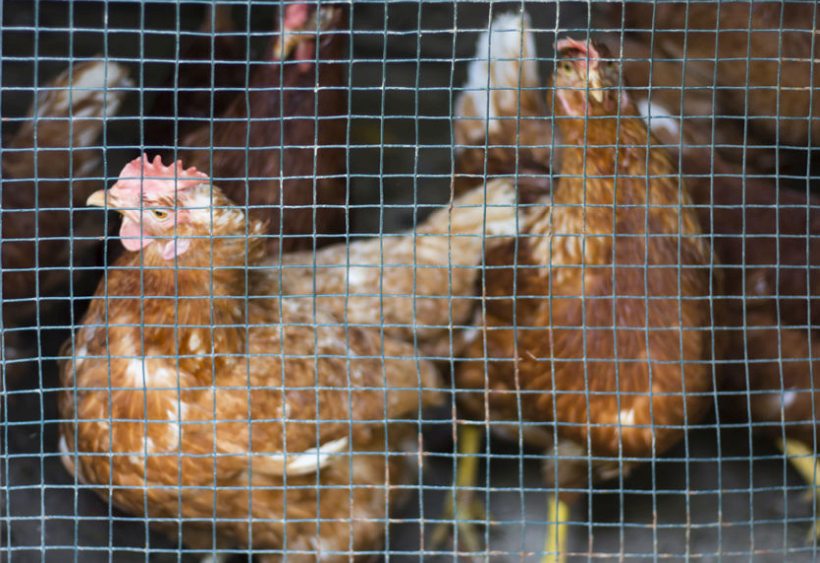Poultry housing order confirmed as bird flu cases rise

Farmers and poultry keepers are being urged by the government to prepare for new mandatory housing measures as bird flu cases in the UK continue to increase.
The order will come into force Monday 29 November in England, Scotland, Wales and Northern Ireland, the UK's four Chief Veterinary Officers said on Wednesday.
This means it will be a legal requirement for all farmers and keepers to keep their birds indoors and to follow strict biosecurity measures.
It follows numerous confirmed cases of highly-pathogenic H5N1 avian influenza in both commercial and backyard poultry, captive birds and wild birds in recent weeks.
The UK's Chief Veterinary Officers are encouraging those who keep birds to use the next few days to prepare for the compulsory measures.
This includes taking steps to safeguard animal welfare, consulting vets and putting up additional housing.
Housing measures have been in place for parts of North Yorkshire since 21 November following a number of confirmed and suspect cases of bird flu in the area.
The housing measures build on the biosecurity regulations that were brought in across Britain as part of the Avian Influenza Prevention Zone (AIPZ) on 3 November and in NI on 17 November.
The new rules means that from 29 November, in addition to housing all poultry and captive birds, keepers must continue taking extra precautions to keep flocks safe.
This includes regularly cleaning and disinfecting equipment, clothing and vehicles when entering or exiting sites and limiting access to non-essential workers or visitors.
In a joint statement released on Wednesday afternoon, the UK’s Chief Veterinary Officers said they had taken 'swift action' to limit the spread of the disease.
“Whether you keep just a few birds or thousands, from 29 November onwards you will be legally required to keep your birds indoors, or take appropriate steps to keep them separate from wild birds.
"We have not taken this decision lightly, taking this action now is the best way to protect your birds from this highly infectious disease.”
Keepers are also being advised by the government to be vigilant for any signs of disease in their birds and any wild birds, and to seek advice from vets if they have any concerns.
How do I prepare for the housing order?
The UK's four Chief Veterinary Officers said farmers and poultry keepers must now do the following:
• House or net all poultry and captive birds to keep them separate from wild birds
• Cleanse and disinfect clothing, footwear, equipment and vehicles before and after contact with poultry and captive birds – if practical, use disposable protective clothing
• Reduce the movement of people, vehicles or equipment to and from areas where poultry and captive birds are kept, to minimise contamination from manure, slurry and other products, and use effective vermin control
• Thoroughly cleanse and disinfect housing on a continuous basis
• Keep fresh disinfectant at the right concentration at all farm and poultry housing entry and exit points
• Minimise direct and indirect contact between poultry and captive birds and wild birds, including making sure all feed and water is not accessible to wild birds
Bird keepers are also being told to report suspicion of disease in England to Defra Rural Services Helpline on 03000 200 301, in Wales contact 0300 303 8268.
In Scotland, keepers should contact their local Field Services Office, in Northern Ireland, contact DAERA on 0300 200 7840.








